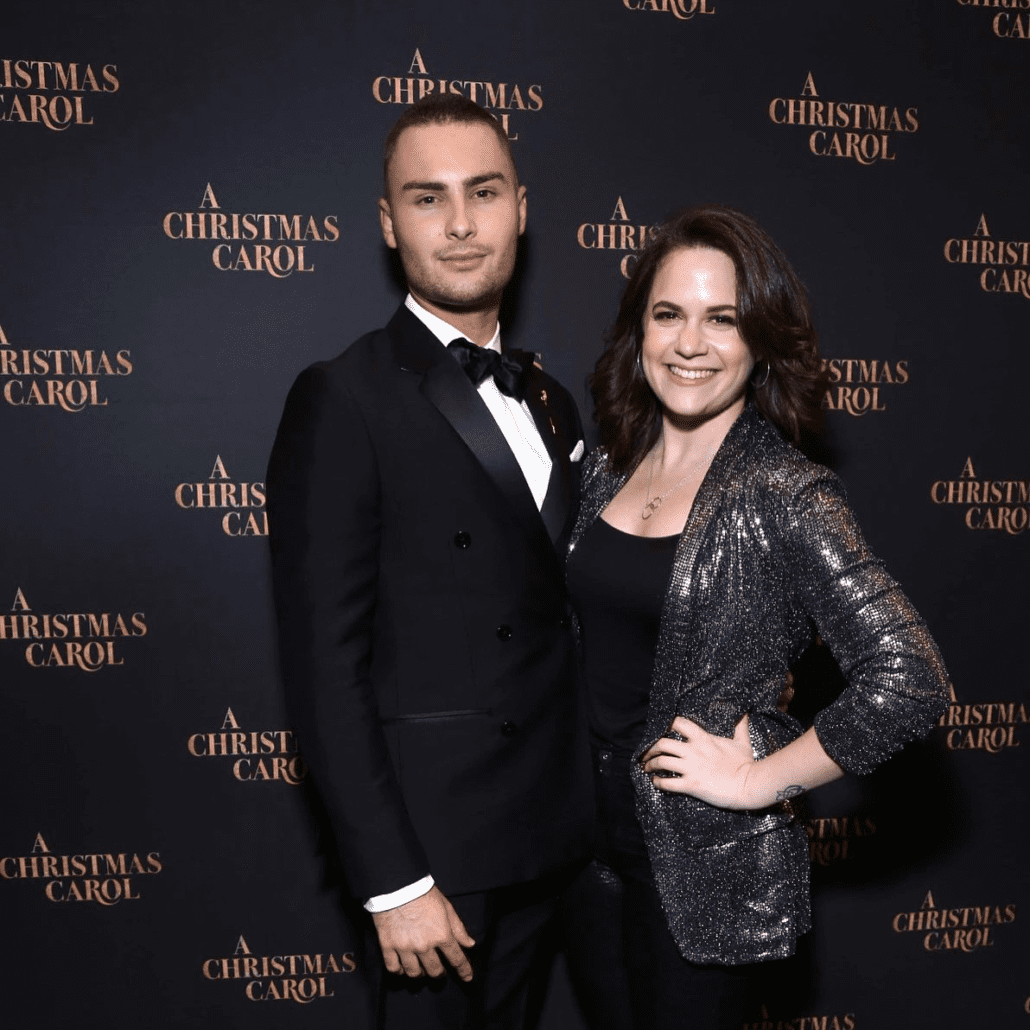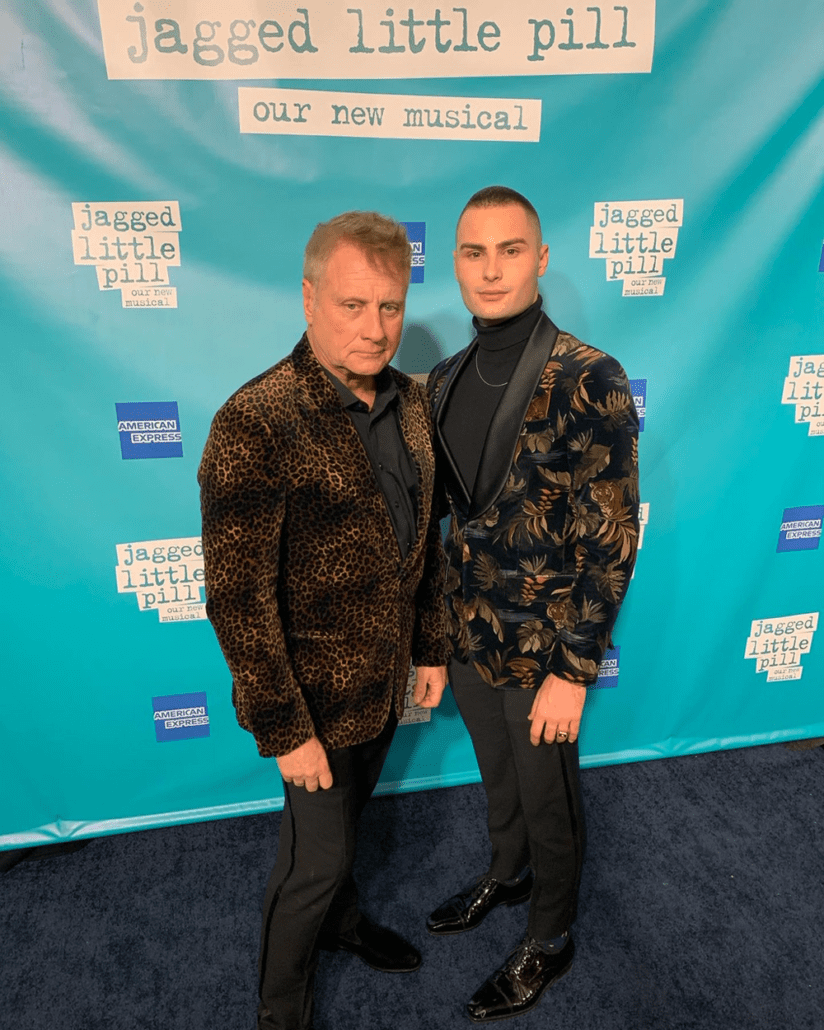Broadway Producer Chase Thomas is Flipping the Script

Dismantling Archetypes and Making Entertainment More Inclusive
Archetypes are the backbone of storytelling. They are literary devices that make it easy to digest basic human motivations. In Hollywood, characters generally follow a pattern of sameness. These implausible traits become so intrinsic to cinema and musical theater that the characters often don’t reflect the human experience. Sometimes archetypes change with the advent of new generations but rarely do studio narratives stray from the formulaic process.
In film, minority actors are typically cast as secondary roles adjacent to their white, heteronormative counterparts. These archetypes appear heavily in the Rom-com movie genre. Take for example the archetypes in the 2002 Romantic Comedy Sweet Home Alabama. Reese Witherspoon plays a high-powered New York fashion designer who goes back home to finalize divorce papers from her high school sweetheart. Nathan Graham Lee plays Reese Witherspoon’s fabulous fashion mentor. As a Black gay man, Nathan is relegated to a sassy stereotype and takes a backseat to Reese’s starring role. Hollywood perpetuates these contrived situations that characters are expected to fit within.
In musical theater, there’s the ingénue who is an innocent or unsophisticated young woman. Christine Daae from The Phantom of the Opera is a classic example of this theatre typecasting. These one-dimensional characters create rigid storylines that don’t tap into the reality of our complex human nature. Audiences today expect to see more diverse characters and storylines that reflect a real human experience rather than a Hollywood fabrication. Musical theater has become more inclusive with shows like Hamilton in part because of the broader social justice movements occurring today.
A New Generation of Entertainment Business Professionals
As part of these social shifts, efforts have been made to dismantle traditional archetypes and typecasting in the entertainment industry by younger progressives. Many performance groups are using their platforms to fight for change in theater, including our Entertainment Business alumnus Chase Thomas. LAFS interviewed Chase Thomas after he graduated with his Bachelor’s in Entertainment Business from the L.A. Film School. We talked to Chase about his theater company Carmine Entertainment, how he got started in musical theater, and where he is headed as a Broadway producer and business owner.

Interview with L.A. Film School Alumnus Chase Thomas
LAFS: We have to congratulate you on your Jagged Little Pill Tony nomination for Best Musical before we dive in!
I know! Thank you so much. It usually doesn’t happen that your first professional show is a hit right out of the gate. Even before the pandemic “Jagged Little Pill” was kicking butt. For context, “Jagged Little Pill” is nominated for 15 Tonys, and “Hamilton” had 16 in 2016, which is the most a production has ever received.
LAFS: Describe what your job as a musical theater producer entails.
We’re the CEOs. That’s how I like to describe it. Producers are the top men and women running the show. We do everything from finding the idea to funding it to the creative process to casting to…basically everything. We are the administrative force behind the show. Producers are usually the first people to believe in a show and get it off the ground. It’s very hard work but also very rewarding work. I’ve been working as a producer on “Jagged Little Pill” for two and a half years. I got that show when I was 20 years old and then “A Christmas Carol” [producing opportunity] came along, and I was able to jump on that musical right after.
LAFS: How has COVID impacted your producing career in musical theater?
So when the pandemic happened, I had just graduated school [from LAFS], and I was so excited at the possibility of what was next. Then the pandemic hit and shut everything down. I did sulk for two weeks, and it’s OKAY to sulk for a little bit. I wasn’t sure what I was going to do, so I sulked and then started reading Bob Iger’s book which really brought me back to life. Bob Iger’s whole thing is “Innovate or die”. Obviously, that is what everyone has to do now.
I decided to pivot and figure it out. In March, I created an online Broadway master class series because a lot of broadway professionals were out of work. I knew there were a whole bunch of theater kids who would be interested in the class, so I wanted to bridge the gap between the professionals and local theater students with this online class. After that, I produced a virtual show called Project Sing Out with Whoopi Goldberg, which helped raise funds for the Educational Theatre Foundation (ETF) to support arts education, specifically in low-income communities and communities of color. We were able to raise more than $50K for the program in this new media format for Project Sing Out.
LAFS: How were you able to make lemonade out of lemons during this pandemic?
I’m not afraid to reach out to people I don’t know and connect with them. You have to be genuine about what your passion is and that will help you connect and network with the right people. LinkedIn is also a great tool for cold networking and is a great way to get started.”
Also, it’s this weird combination of timing, luck, preparation, connection and the ability to be a self-starter and not being afraid. And young, progressive producers are very sought after right now.
LAFS: Tell us about your theatre production company, Carmine Entertainment.
There are very few of us younger progressive producers out there, so I decided to create a space for us. We have two companies—Carmine Theatrical Entertainment and Carmine Creative Entertainment. Carmine Theatrical is solely responsible for the investment of entertainment. And Carmine Creative is the fun production side of the company. Right now, we are producing a Hanukkah celebration for the World Union for Progressive Judaism.
LAFS: If you could pick a favorite Broadway Musical of all time what would it be?
Previously it was “Wicked”. But when I saw Jagged—and again, this isn’t me even being biased—I fell in love with Diablo Cody’s book. This was her first time writing a book for the stage and she did an amazing job.
LAFS: What’s next for you?
Staying in the industry and keep doing what I’m doing. I want to create a more diverse and fair space for people who want to express themselves through theater and entertainment.
